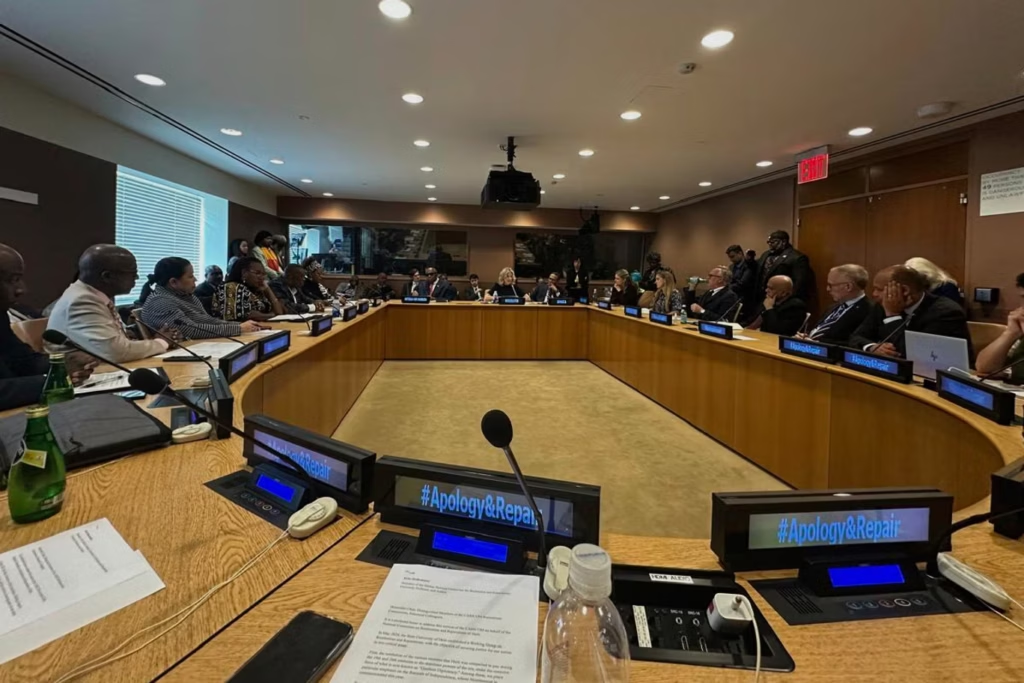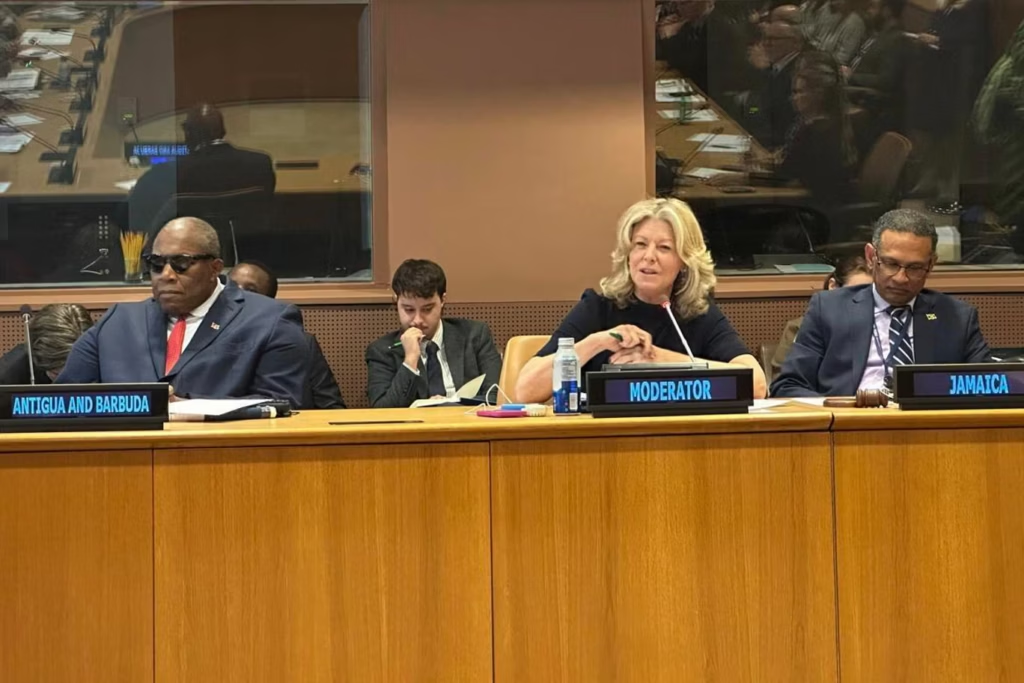Turk noted a European Union statement in 2023 that expressed profound regret for the “untold suffering” caused by the transatlantic slave trade, and the African Union’s designation of 2025 as the “Year of Justice for Africans and People of African Descent Through Reparations.”
At the meeting of descendants of enslaved people and slave owners on Tuesday, Trevelyan spoke of her family’s decision to apologize to Grenada and to make a contribution of £100,000 (about $133,000) toward education in the Caribbean island nation.
Going to Grenada with her family and apologizing “wasn’t exactly smooth sailing,” said Trevelyan, who has now left the BBC and become a campaigner for reparations. There were protests by one group that thought the apology was inadequate and the money not enough.
Also at the meeting was Aidee Walker, who said she was shocked when she found out via a DNA test that she was not only predominantly Scots-Irish but also part Nigerian, then discovered that her great-great-great-grandfather, who had moved to New Zealand, was the son of a slave owner in Jamaica named John Malcolm and an African housekeeper.
Walker and her sister, Kate Thomas, said that when they found out, they felt they had to do something.
Thomas said she discovered what Trevelyan was doing and got in touch with Verene Shepherd, a professor emeritus and vice-chair of the Caricom reparations commission, who encouraged the sisters to start with the apology.
Charles Gladstone, the great-great-grandson of William Gladstone, said he felt “a profound sense of guilt” after learning that the 19th-century prime minister’s father had owned estates with enslaved people — and that a great deal of his privileged life “was essentially connected to this criminal past.”
He said he apologized to Guyana and Jamaica and would try to do something “to make the world a better place.”
While Britain’s role in abolishing slavery in 1833 is widely taught, Gladstone said, its involvement in the trade “has been completely buried.” The history must be told, he said, because “the evils of this crime against humanity are not historical: they’re felt very, very profoundly today.”
Britain’s deputy U.N. ambassador, James Kariuki, attended the meeting but did not speak. The British Mission, when asked for a comment, sent a statement given by development minister Anneliese Dodds to parliament on Feb 25, in which she said that she and prime minister Keir Starmer were “absolutely clear that we will not be making cash transfers and payments to the Caribbean.”
Gladstone said supporters of reparations must keep working together. He said that if thousands of families like his stand up and say “We would like to do something about this” then there is “a chance that the government in Britain could do something more substantial.”
Thomas agreed. “If we can get the numbers, then that could influence institutions and governments to act,” she said. “It’s a really great start to what I think will be a lifelong journey.”
Shepherd, who taught at the University of the West Indies, said there have not been many apologies and, while some Europeans express remorse or regret for slavery, “No one is talking about reparations.”
However, Arley Gill, the chair of Grenada’s National Reparations Commission, said that he sees positive movement toward reparative justice globally, and believes “we are on a good path to ensure these crimes against humanity are being recognized by the colonial powers.”
Antigua’s U.N. ambassador, Walton Webson, who is chair of the Caribbean ambassadors’ caucus, ended the meeting by saying, “We have reached the point where speaking of reparations is no longer taboo.”
Now, he said, it’s time to put reparations “on the lips of every child, every person” and to start to take action.


